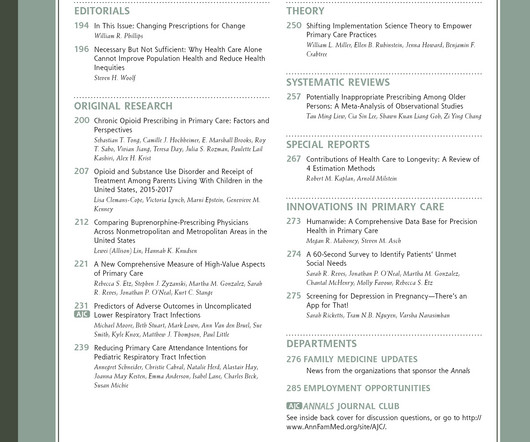Oral versus intravenous antibiotics for the initial treatment of acute pyelonephritis in adults: a systematic review [Acute and emergency care]
Annals of Family Medicine
NOVEMBER 20, 2024
Context Acute pyelonephritis is a common diagnosis in the primary care and emergency settings. Study Design and Analysis Five electronic research databases were searched to identify randomized controlled trials (RCT) and non-randomized studies of interventions. Intervention N/A.












Let's personalize your content